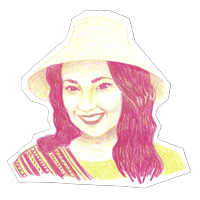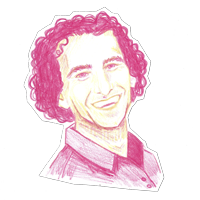Net-zero jargon and concepts demystified
Full interview with Janna Wale, an Indigenous policy advisor

Janna Wale
Janna Wale is Gitxsan from Gitanmaax First Nation, and is also Cree-Métis on her mother’s side. She uses a complex human-environmental systems approach in her work, and believes that this lens can be used when looking for ways to bridge western and Indigenous climate work. Janna’s research focused on climate resilience in Indigenous communities. In 2023, Janna was the recipient of the Anitra Paris Memorial Award for female youth climate leadership through Clean Energy BC, and was named as an Indigenous Trailblazer through Diversity in Sustainability.
Full interview with Simon Donner, a UBC professor working in the field of climate science

Simon Donner
Simon Donner is interested in the human, societal, and environmental impacts of climate and climate change. He is an interdisciplinary climate scientist and professor, teaching at the intersection of climate science, marine science, and policy. He has held appointments in UBC’s Institute for Resources, Environment and Sustainability, Geography Department, and Institute for the Oceans and Fisheries, and is a member of Canada’s Net-Zero Advisory Body, which advises the federal government on pathways to eliminate climate-warming emissions.
